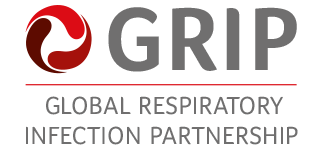Changing behaviours
In terms of direct action it is clear that although policy changes help influence the environment and trigger conversations, targeted action is key to success among specific groups. Evidence from this year’s GRIP meeting showed that there are still some key areas to address at a community level.
Prescribers: Among prescribers, education on antibiotic resistance and better stewardship remains of primary importance. Equipping prescribers with a repository of techniques for managing patient expectations around the need for antibiotics would help sometimes difficult conversations. Affordable diagnostic tools and treatment guidelines will further enforce appropriate prescribing practice around upper respiratory tract infections. Comparative data among prescribers has also been shown to be effective, exerting some peer to peer pressure. A better understanding of microbiology and enhanced understanding of stewardship will help deliver clinically meaningful changes in behaviour.
Pharmacists: Among pharmacists the willingness to sell antibiotics is a challenge in many countries.Policy changes such as those seen in Brazil are key enablers. While acknowledging individual responsibility is important, regulation and guidelines would enable a consistent approach. Giving pharmacists a greater sense of their leadership in managing community health at this level through better research on outcomes, educational efforts and clarity on the effectiveness of symptomatic solutions in upper respiratory conditions would be key actions to implement.
Patients: Patient demand remains a key barrier to successfully reducing the inappropriate use of antibiotics in largely self-limiting conditions. While guidelines and restrictions can reduce access, ultimately in many cases persistent demand from patients still results in antibiotics being issued or sold. While publicity campaigns are being evidenced around the world, there is still much work to be done to reduce ‘pester power’, and to convince patients that while their symptoms may be causing them distress, in conditions like upper respiratory tract infections, treatment with an antibiotic is extremely unlikely to make them feel better sooner. The detrimental effect to society because of individual actions, i.e., “a tragedy of the commons”, should also be emphasized.
These messages need to be consistently delivered across multiple stakeholders to ensure that everyone recognizes that antibiotics need to be protected for the future health of everyone.
